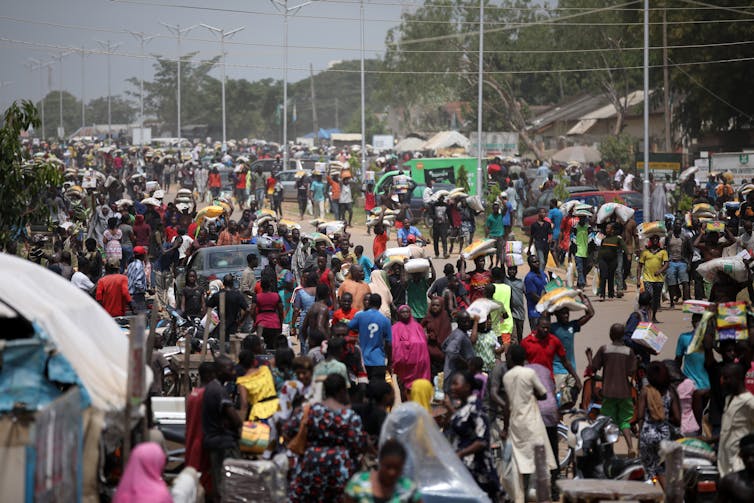
Dr Abiodun Musbau Lawal, Federal University, Oye Ekiti
The toll of the coronavirus pandemic on physical health and lives worldwide is enormous. But the disease and the lockdown measures have had an impact on mental health too.
Some of the mental health issues that have been reported due to COVID-19 include anxiety, depression, anger, confusion, insomnia, post-traumatic disorders, boredom, loneliness and adjustment problems.
The phases of COVID-19 lockdown in Nigeria spanned between early May 2020 and the end of July 2020. Movement was restricted during this period. Gradually, lockdown was eased but a curfew of 8pm to 6am was introduced across major cities in the country to curtail the spread of the virus.
As far as we knew, no previous research had examined the influence of socio-demographic characteristics on mental health among Nigerians during COVID-19 lockdown. So we set out to study the effects of some of these variables on successful coping, stress and self-esteem.
The findings about which categories of people struggled most with their mental health under lockdown could inform interventions to make sure their needs are met.
Demographic variables and aspects of mental health
The socio-demographic variables that we considered in the study were gender, marital status, religion, ethnic group, education attainment and employment status. The facets of mental health we looked at were coping, stress and self-esteem.
We collected information for the study through an online questionnaire across Nigeria. Most of the 353 people, aged 18 to 65, who responded were from the southwestern parts of the country, and they had access to smart phones and social media.
This means the findings may not represent people from lower income groups or other geopolitical areas of the country. Most of our respondents (63%) were men and most were from the three major ethnic groups in Nigeria: Yoruba, Igbo and Hausa.
The questionnaire asked respondents whether they agreed or disagreed with or were undecided about 12 statements relating to their mental health. These were statements such as “I lose much sleep over worry”, “I have been feeling unhappy and depressed” and “I have been losing confidence in myself”.
Who adjusted better and in what ways
We found that different categories of people reported psychological impacts during the COVID-19 lockdown. The Yoruba ethnic group, in the southwest region of Nigeria, adjusted better to the situation than other ethnic groups. The Igbo people, in the southeast region, were not that worried when compared to other ethnic groups. But the Yoruba had more positive views of themselves than other ethnic groups did.
The accessibility of quality mental healthcare services differs by region, which is why we regarded ethnicity as relevant in our investigation.
We also analysed educational attainments. We found that individuals who had attained postgraduate education adjusted better and had a more positive view of themselves compared to others. We found that people who had completed secondary school appeared to worry less during this period. Those who were self-employed in Nigeria were able to adjust well, while the unemployed were more worried and had poor views of themselves.
Married people adjusted well; they were less worried and had more positive views of themselves than the unmarried. The married women coped better than married men. The single men adjusted better than single women.
In terms of employment status, salary earners were less worried and had more positive views of themselves than the self-employed or unemployed. Self-employed men adjusted better to the situation than both men and women who earned salaries, as well as unemployed men and women and self-employed women.
Self-employed singles were more anxious than unemployed married and unmarried people, single or married salary earners, and married self-employed individuals.
Looking ahead
Generally, our research findings led to some interesting revelations. We found that men and women suffered mental health problems during the COVID-19 pandemic – which contradicts findings from studies conducted elsewhere. In line with other studies, individuals’ mental health differed based on their marital status, education and employment status.
As Nigeria continues to battle with the challenges of COVID-19, it is worth noting that the categories of individuals who are most susceptible to psychological problems under these circumstances are the unmarried, the unemployed, the less educated and those from the northern parts of the country. These people should receive due attention in intervention programmes.![]()
Dr Abiodun Musbau Lawal, Lecturer, Department of Psychology , Federal University, Oye Ekiti
This article is republished from The Conversation under a Creative Commons license. Read the original article.

